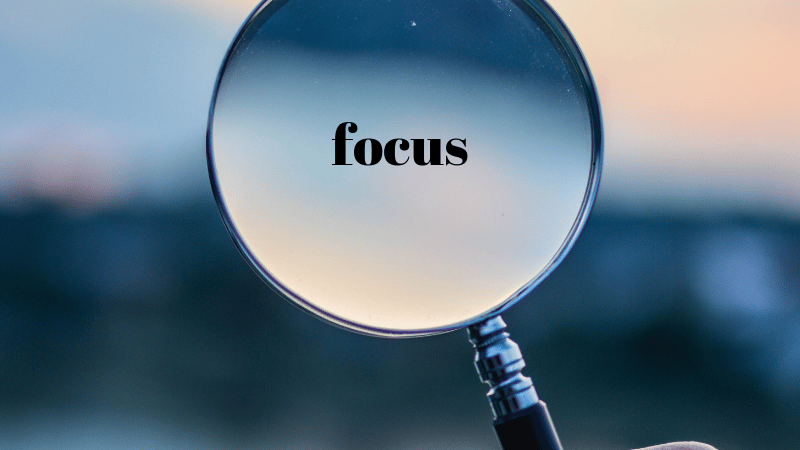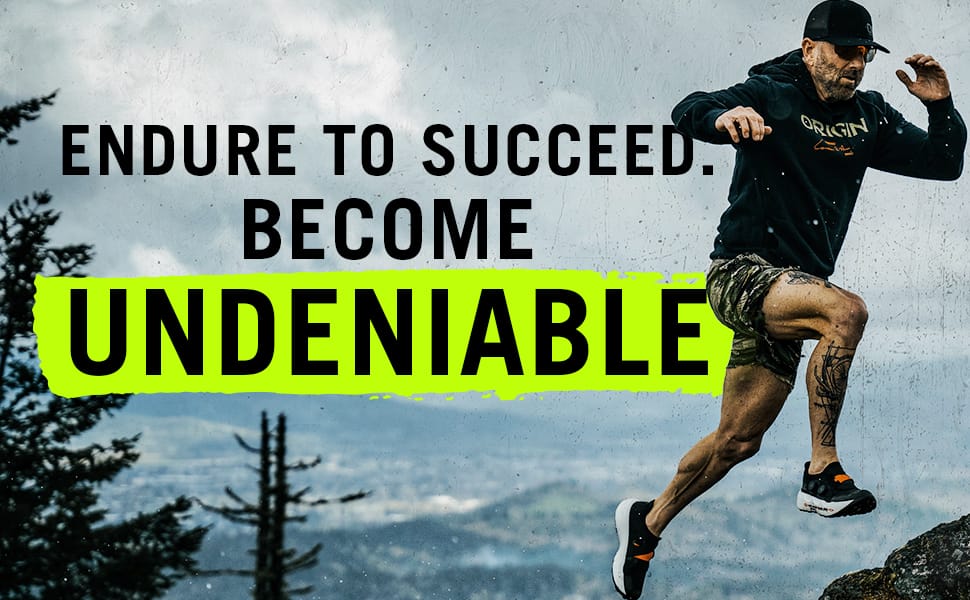
Volume 067
“The single greatest skill you can develop is the ability to stay in a great mood in the absence of things to be in a great mood about” - Alex Hormozi
Week three of the Summer Signal Drop in the books, and I feel like we are finally starting to hit our stride. Maybe it was all the time spent running 50 miles last week for third week of marathon prep, but I simply find myself feeling less and less pulled by the attraction of my phone.
This was always the main goal - to create distance and structure around device use - but I had a number of side goals that were to be the byproduct of freeing up more time in my life to do more meaningful things. The goal for this week is to begin making progress on those things. The first few on the list:
Consolidate belongings - My closet is full of clothes I know I will never wear again. Why are they there? I can’t tell you. The thought of wearing them one day? A ridiculous assumption at this point. It’s time to just finally cleanse the palate and lean into the fact I wear the same 15 things. This goes for the rest of the house too.
Simplify & Improve My Daily Task Management Systems: I want to focus on identifying what truly works for me to get things done consistently. I know I am a morning person, so the foundation of this new system will be built on leveraging the first half of the day
Improve Cadence of Phone Conversations with Friends: As I disconnect with social media, I want to re-connect in more meaningful ways. It’s so easy and powerful to pick up the phone and check in on your friends - something Allison does really well - and something I want to do more of
Sign up for new Classes: I have already picked out my next AI class, but I also intend to do an advanced public speaking course in person this summer to hone that skill
The whole point of this is that it’s not just getting away from the digital intoxication of devices, it’s an understanding that there are more impactful ways to spend my time. Time that I now have. If you were to attempt to put similar structure around device usage in your life, what are some other action items you would want to focus on with your new availability?
Superset of the Week:
Brain - The Science of Focus

Part of the objective of separating myself and adding some structure back to my life for the summer came down to simply wanting to improve my ability to focus, and to understand what impacts my ability to do so in a positive and negative way. I spend a lot of time reading, yet I still feel like there are times where my ability to override my neural system and lock in on a task isn’t as powerful as it should be. I continue to be fascinated by the research around focus, and continue to come back to it be a simple understanding about how our brain actually works.
The Science Behind Focus
Focus is governed by the prefrontal cortex, the part of the brain responsible for decision-making, attention, and self-control. When you're focused, your brain is in a state of “high neural efficiency”, filtering out irrelevant information and zeroing in on a single task.
But here's the catch: your brain wasn’t built for sustained attention in a digital world. It evolved to scan the environment, always on alert. Every notification hijacks your attention with a hit of dopamine, the brain’s reward chemical. This is what makes multitasking (or even checking your phone “just for a second”) so detrimental to deep work.
According to a study from the University of California, Irvine, it takes the average person 23 minutes and 15 seconds to return to deep focus after a single interruption.
Actionable Tips to Improve Focus
Time-Block Your Day (with Built-In Breaks):
Use a method like the Pomodoro Technique—25 minutes of deep work followed by a 5-minute break. This works with your brain’s natural attention span and helps you avoid burnout.Protect Your Mental Energy:
Tackle cognitively demanding tasks first thing in the morning when your willpower is highest and decision fatigue hasn’t set in. This is known as your biological prime time.
Here are a few great podcast episodes on focus:
The Huberman Lab – “How to Improve Your Focus and Concentration”
Dr. Andrew Huberman explains the neuroscience of attention and gives science-backed tools for improving mental performance.
Listen on SpotifyThe Tim Ferriss Show – “Cal Newport on Deep Work, Focus, and Success Without Social Media”
Cal Newport shares insights from his bestselling book Deep Work and talks about eliminating distractions to master cognitively demanding tasks.
Listen on SpotifyHidden Brain – “Deep Work: How to Escape Distractions”
A psychological look at why focus is so difficult and what to do about it.
Listen on Spotify
Body - The Power of 10,000 Steps

Walking 10,000 steps a day might sound like just a trendy fitness tracker goal, but the research continues to compound on its many benefits.
The reality for most people is that to start seeing change in their bodies and minds, a herculean effort is not needed, it’s simply a doubled down commitment to the fundamentals that can be repeated over time. Walking and steps are one of those fundamentals. As you walk, you burn more calories, you free space in your mind to think, and you reap the many benefits of going against the sedentary grain of our modern life.
Here’s what 10,000 steps, 7 days a week, will do for you:
Physical Benefits
Consistently hitting 10,000 steps (about 4–5 miles) improves cardiovascular health by lowering blood pressure and reducing LDL (bad) cholesterol. It also strengthens your muscles and joints, which helps improve posture, balance, and long-term mobility. Over time, walking at this volume improves endurance, making it easier to take on more intense physical activity or simply go about your day with less fatigue.
Weight and Metabolic Health
Walking is a low-impact, sustainable way to burn calories and increase daily energy expenditure. For someone weighing 150–200 pounds, 10,000 steps can burn 300–500 calories depending on pace and terrain. When paired with mindful nutrition, this can significantly support weight loss or weight maintenance. It also improves insulin sensitivity and reduces the risk of developing type 2 diabetes.
(Using this math - if you simply walked 10,000 steps and ate 300 calories under your maintenance calories, you would lose about 1 - 1.5 lbs per week)
Mental and Emotional Boost
Walking is proven to reduce cortisol, the body’s stress hormone, and elevate mood by increasing endorphins. Walking outdoors, especially in the morning light, enhances vitamin D production and regulates your circadian rhythm - helping you sleep better at night. Even a brisk 10-minute walk has been shown to boost focus and reduce anxiety. I like to think of it as moving meditation.
Fitness Foundation
Walking builds the base for a stronger body. Whether you’re a runner, lifter, or casual gym-goer, a consistent walking habit increases your daily movement without overtaxing your system. It improves recovery, circulation, and joint mobility, especially on rest days. For endurance athletes, it’s also a key form of low-intensity aerobic training that helps increase your aerobic base.
The Habit Advantage
Walking is accessible. No equipment. No gym. No excuses. It’s an easy habit that compounds over time and teaches you discipline through consistency. Set a step goal and anchor it to your routine—morning walks, walking meetings, post-dinner strolls. Small choices add up.
You don’t have to crush every workout or overhaul your diet overnight. But if you start walking 10,000 steps a day, you’ll improve your physical health, mental clarity, and overall fitness—one step at a time.
Book - “Undeniable” by Cameron Hanes

This week, I’m kicking off “Undeniable”, the new book by Cameron Hanes, and I know it is going to be one of those books that a few of you would benefit from reading with me.
If you’re unfamiliar with Cam, he’s an ultra-endurance athlete, bowhunter, and one of the most mentally tough people alive. The sales pitch for Cam? I don’t see any more powerful than this quote from David Goggins:
"I have trained with many of the toughest men and only one stands out... Cameron Hanes."
Just last week, at age 56, Cam ran the Cocodona 250—a grueling 250-mile ultramarathon through Arizona’s toughest terrain. And if that’s not enough, he did it on a broken foot.
That’s not motivation. That’s obsession. The kind of obsession that I love to study and read about, because so much can be gleaned from the mentality of these 1 percenters. And it’s the kind of obsession that Undeniable explores—how to chase your highest potential with relentless drive, no matter your age, job, or circumstances.
I know this book will be a reminder that we all have more in us—and that the cost of greatness is discomfort, discipline, and doing what others won’t.
If you're someone who wants to push the edge of your physical, mental, or professional limits, I think this book will hit hard. I’ll be sharing key takeaways in the coming weeks—but I’d love for you to pick it up and read alongside me.
Want to hear more before diving in? Check out Cam’s recent podcast appearances:
Nick Bare Podcast – Episode #233: Cam breaks down his mindset during the Cocodona 250 and the mental war of running injured.
Modern Wisdom with Chris Williamson: A deep dive into obsession, aging with intensity, and what it means to live a life of purpose.
Keep Hammering!
Breakthrough of the Week - Secondary Content Email
I got this idea from my buddy Darus, and think it’s absolutely worth sharing. How many of you are constantly cleaning up the BS in your email inbox, to the point where you often miss the good stuff that you actually wanted to receive in the first place?
A simple solution - create a secondary email for all content related emails. Think about an inbox devoid of Best Buy and Lululemon ads, and one simply of maybe a little news, but mostly, a whole lot of positive newsletters. I just set mine up last week.